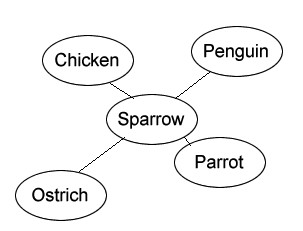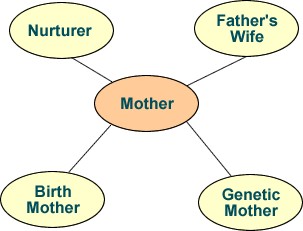In a past post, Grumpypilgrim asked : “Why do the two parties divide the issues the way they do, and who decided that the issues should be divided the way they are?”
I’ve often wondered that too. After all, you would think that the “pro life” Republicans would also be against capital punishment. You might think that a “conservative” Republican would be in favor of conservation, not squandering, of either the treasury or the environment. You would think that those supporting smaller, weaker starve-the-beast government would resist laws that harass gays. Asked in another way (regarding Democrats), what do gun control, generous welfare benefits, pro-union and pro-choice positions have in common?
George Lakoff asked these questions too. Writing of conservatives, he wondered:
. . . What does being against gun control have to do with being for tort reform? What makes sense of the linkage? I could not figure it out. I said to myself, These are strange people. Their collection of positions makes no sense. But then an embarrassing thought occurred to me. I have exactly the opposite positon on every issue. What do my positions have to do with one another?
(p. 5) Lakoff proposed a solution to these questions in his bestseller Don’t think of an elephant!: Know your values and frame the debate (2004). He concluded that our two different ways of understanding the nation come from two different understandings of family.
The conservatives model government off of a “strict father” model, where the government’s role is to
- Protect the family in the dangerous world
- Support the family in the difficult world, and
- Teach his children right from wrong.
(p. 7) In this view, obedience and punishment are emphasized. Physical discipline is necessary to develop inner discipline. Morality, the harnessing disciplined self-interest, enables prosperity. Well-being is wealth. Government must not meddle in the wealth gathering, where the good people are those who are being rewarded.
According to Lakoff, progressives base their view of government on a nurturing parent model. The nurturing parent strives to see that everyone is cared for, cared about and protected. The nurturing parent uses empathy to meet the desires of the family members. The nurturing parent encourages mutual interaction and care. The obedience of the children “comes out of their love and respect for their parents, not out of the fear of punishment.” Two-way mutually respectful communication is crucial. The child must be free to make choices to learn and grow. Community-building and cooperation are stressed.
[Lakoff also addressed these two models in an earlier book, Moral Politics (1996, quote at p. 109). I have presented a simplified version here. Lakoff develops these models more fully in his books.]
How, then, do the positions of the respective parties fit together as “Democratic” or “Republican” positions? The traditional model for categorization deems that members of categories must each share necessary and sufficient characteristics. For many important categories, this view is incorrect, per Lakoff. He more fully develops this view in his 1990 book: Women, Fire and Dangerous Things.
A “radial category” is a linguistic category that has a central case (or “prototype”) and various extensions (members of the category). Each extension from the central prototype case (i.e., each party position) is related to that central case (the strict father or the nurturant parent) by means of an experientially-grounded metaphor or metonymy, even though these various extensions (the party positions) might have very little in common with each other other than their connections to the central case. Here are two examples, presented on the USBC website:
Bird

Mother

As you can see, the members of the categories (which, again are extensions from the central or “prototypical” member, via metaphor or metonymy) lack one or more features associated with that prototype. Not all birds fly. Some of them swim. In the second example, not all mothers are biological mothers and not all mothers are (necessarily) nurturant. In short, there is no set of necessary and sufficient conditions that would include each of the member of either of these categories. It’s the same with political positions.
Republican positions extend from the central “strict father” inner core. Strict fathers are tough (pro-military) and prone to use tough love (stingy on welfare), for example. But being pro-military wouldn’t seem to require that one also be stingy on welfare. Again, the members of the category might not have much in common with each other, even though they are imaginative extensions from the same inner core idea (e.g., there is a imaginative logic by which a strict father would approve of each of the various Republican positions).
Although I still struggle to understand the Republican positon on some issues (e.g., enviornment), Lakoff has offered an approach that does make sense of many political positions that would otherwise appear random and self-contradictory.
If you’re interested in further reading, check out Lakoff’s books or Wikipedia’s article on “Moral Politics.”

